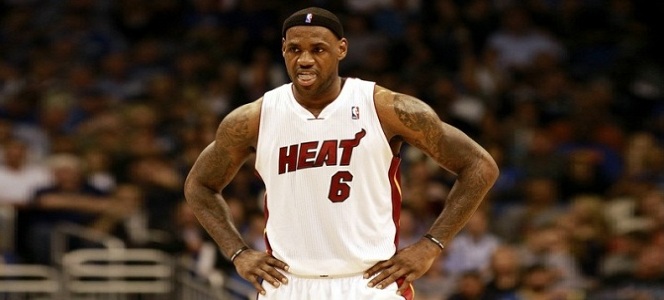One of the sports shows that my husband and I don’t miss to watch everyday is ESPN’s ‘First take’ with Skip Bayless and Stephen A Smith. If you are familiar with them then you would ask me who do I enjoy listening to more? It is Skip Bayless. Of course. Because he always speaks contrary to general opinion. When the NBA season kicked off last week, more than their discussions, my attention was driven to LeBron James! Listen, I am not here to judge if LeBron James is a better player than Micheal Jordan or not. But why is LeBron still on several lists for the most hated professional players today? Including Skip Bayless’s.
Little flash back here on why people hate LeBron. For my readers who don’t really care a whole lot about sports (like me) or who don’t know LeBron –
Lebron James is an an American professional basketball player for the National Basketball Association and was selected by Cleveland Cavaliers in 2003 with a lot of hype. He called himself King James and the Chosen One! From the time he was drafted he was a dedicated and competitive team player who served Cleveland Cavaliers for seven years and was their all time leading scorer. In 2010 he quit Cleveland Cavaliers and joined the Miami Heat. And there started the hate fire storm! With so much hate this one guy even wrote a book about his hate towards him. Which I feel is totally insane!!
Is he being hated because he spoiled the trust of Cleveland Cavaliers and their fans by quitting on them. Reading his story made me realize that he shouldn’t be looked upon as a villain anymore. He is an exceptionally skilled basketball player who has a strong desire to win and passion for his career. All he did was, just like you and me, if we don’t like to work for an organization we quit. His story might be a couple of years old but there are several HR lessons to be learnt here.
Let me break this down into a few thoughts from an HR point of view. Being a star performer and a loyal employee why did LeBron leave Cleveland Cavaliers? Did he leave due to intrinsic or extrinsic factors. What do you think? As per me:
Low Salary: No! How could he be getting a low pay by being an All Star MVP? Check out his earnings per year at Celebnet worth. Another point to add on here is that when he joined the Miami Head, although his contract would have allowed him to earn the maximum salary under the collective bargaining agreement, he took less money in order for Miami to be able to afford other superstar players as well as for further roster support. So he definitely is not an avaricious person. With several millions of dollars of endorsement deals he could have made lots of money anywhere he played.
Lack of opportunity for personal stats: No way again. I cannot think of this point for an established top defensive player in NBA and league MVP! Opportunities were enormous to rack up stats and will be in the future as well.
Now from the above points its clear that LeBron James quit not due to a lack of intrinsic rewards but extrinsic rewards. Which is listed down here
Lack of support from team: Through out the 7 years at Cleveland he had brought home a lot of wins but when Cavaliers was been defeated by Chicago Bulls in 2009-10 season he had to face a lot of criticism for not playing well. So when a top player or a team member is facing a hard time wouldn’t you give a damn shit about it? And If you don’t, he will think that he doesn’t belong there and has to choose another option and he did! That’s all he did!
Lack of recognition: Recognition doesn’t necessarily mean applauding ones success but it is also means that encouraging and supporting when one fails!. To make him stronger by believing that you have his back. As I said in my previous post, creating a work culture and work relationships where failures are often discussed, accepted and appreciated is much more significant than applauding ones success. And most importantly
Lack of career advancement: He realized that his team mates at Cleveland were deficient in internal motivation and competitiveness to keep up with his level of performance and since Basketball is after all a team sport it is very essential to help each other to achieve team goals. Which in this case was winning a championship. And he went where he could find that help.
Most often salary and attractive perks are secondary. The primary thing is getting an opportunity to be around people/organization who believe in you as a person and value your contribution and help reach the pinnacle.
Now do you think people should hate him because of the decisions he made that he feels were important in his life and career?





